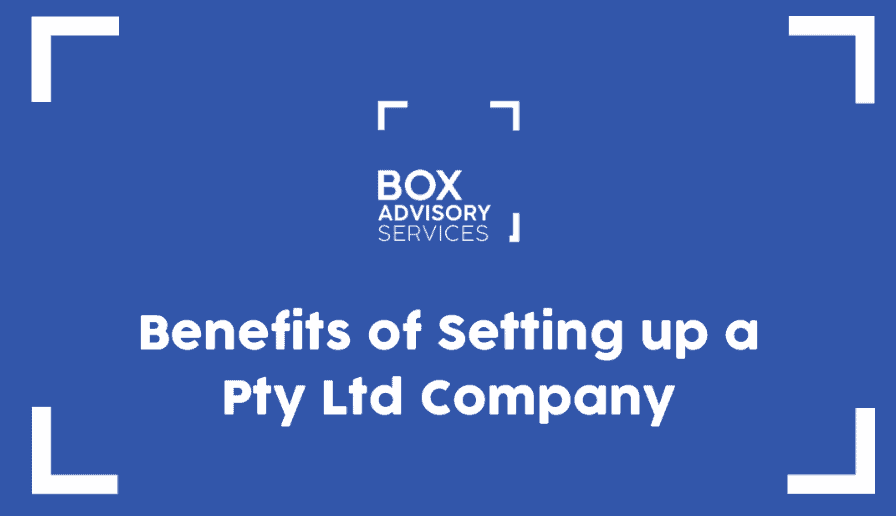
How to Reduce BAS Payments Legally for Australian Businesses
As a business owner in Australia, you are likely familiar with Business Activity Statement (BAS) payments. Every quarter, you report your business’s Goods and Services Tax (GST), Pay-As-You-Go (PAYG) withholding, PAYG instalments, and possibly other taxes via your BAS.
For many businesses, this can feel like a heavy financial burden, particularly if your cash flow is inconsistent or tight.
BAS payments are unavoidable; however, that does not mean you have no control over them. The question often arises: is it possible to reduce your BAS payments legally? Many Australian business owners grapple with this query, especially when cash flow challenges hit hardest.
Let’s explore what you can do about it.
Understanding BAS Payments and Their Components
To comply with registered tax obligations in Australia, every business with an Australian Business Number (ABN) and GST registration must lodge regular BAS returns to report collected GST and other tax obligations.
So, before you can reduce your BAS payments effectively, you need a clear grasp of what exactly these payments include. Your BAS generally covers the following:
- Goods and Services Tax (GST): A 10% tax on most goods and services you sell. You subtract any GST you paid on your business-related purchases (input tax credits) from the GST you collected from your sales. As you collect GST from your customers, you have a responsibility to report and remit these amounts accurately to the ATO through your BAS.
- PAYG Withholding: Tax you withhold from your employees’ wages. This is not something you can reduce directly, as it depends entirely on wages paid.
- PAYG Instalments: These are advance payments toward your business’s income tax based on your projected earnings. These can be adjusted if your income expectations change.
- Other taxes and credits: Fuel tax credits or Fringe Benefits Tax (FBT), if applicable, might also be reported in your BAS.
Of these, GST typically has the largest impact on the amount payable each period. Understanding these components helps you pinpoint precisely where and how you can manage and reduce your BAS payments.
Is It Possible to Reduce BAS Payments Legally?
Reducing your BAS payments legally is indeed possible, but it’s important to set clear expectations. You can’t avoid paying the taxes you legitimately owe. What you can do is manage your BAS obligations strategically and responsibly to ensure you do not pay more than necessary.
Many small and medium businesses pay higher BAS than needed because they overlook legitimate credits, use unsuitable accounting methods, or mismanage their cash flow. Simple, fully compliant changes in your business practices can have a noticeable effect on your BAS liabilities, saving money and improving cash flow significantly.
Legal strategies to reduce BAS focus on efficiency rather than avoidance. The Australian Taxation Office is clear: accurate, compliant reporting is non-negotiable. However, within the bounds of compliance, there are plenty of practical ways to reduce or defer payments.
By carefully choosing your accounting methods, timing your business expenses, maximising allowable credits, and managing your cash flow well, you can keep more money in your business rather than prematurely paying it to the ATO.
Key Strategies to Legally Reduce BAS Payments
Implementing effective strategies to manage your BAS payments can significantly ease your financial burden. Here are several practical approaches you can adopt immediately to legally reduce the amount you owe each quarter.
1. Choose the Right GST Accounting Method (Cash vs Accrual)
Your choice of GST accounting method directly influences the timing and amount of your BAS payments. Australian businesses typically use either cash or accrual accounting methods:
- Cash Basis: You report GST to the ATO only when you actually receive payment from customers or pay suppliers. This method suits businesses that experience delayed customer payments because you avoid paying GST until cash arrives.
- Accrual Basis: GST is reported when invoices are issued or received, irrespective of when the cash is exchanged. This can result in paying GST upfront, potentially straining cash flow if customers pay slowly.
Here’s a simple comparison table to help you understand the differences clearly:
| Accounting Method | When GST is Reported | Best Suited For | Cash Flow Impact |
| Cash Basis | When payments are actually received or made | Businesses with irregular cash flow or slow-paying customers | Easier cash flow management (GST paid after receiving cash) |
| Accrual Basis | When invoices are issued or received | Businesses with stable cash flow or prepaid services | Can strain cash flow if payments from customers are delayed |
Businesses with a turnover under $10 million per annum can typically choose between these two methods. Carefully selecting the method aligned to your cash flow cycle can significantly reduce immediate cash strain when your BAS is due.
2. Maximise GST Credits (Claim All Eligible Expenses)
Claiming all available GST credits is one of the easiest and most effective strategies for lowering your BAS payments. GST credits (also known as input tax credits) are amounts you can reclaim for GST included in business-related expenses.
Many businesses inadvertently miss these credits, effectively overpaying the ATO. Commonly overlooked GST credits include:
- Office supplies (stationery, furniture)
- Fuel and vehicle maintenance expenses
- Professional fees (accountants, lawyers, consultants)
- Marketing and advertising costs
- Equipment and technology purchases
To ensure you’re capturing all GST credits:
- Keep detailed records of every business purchase.
- Ensure you only include the business portion of any expenses with mixed-use, such as vehicles or home offices
- Always request and keep valid tax invoices from suppliers.
- Use accounting software to track expenses accurately.
- Regularly reconcile bank accounts and review expense reports before submitting your BAS.
Studies indicate small businesses often miss claiming up to 10% of legitimate GST credits each year, equating to thousands of dollars unnecessarily lost to the ATO [source: CPA Australia]. Staying diligent and thorough with your claims helps you minimise your net GST obligations effectively.
3. Time Your Expenses and Purchases Strategically
Strategic timing of business expenses is another effective tool to manage your GST obligations. By thoughtfully planning when you make large purchases, you can significantly influence your quarterly BAS payment.
Here’s how timing your expenses helps manage your GST liability:
- Making Purchases Before Quarter-end: By scheduling necessary large purchases, such as equipment, supplies, or services, towards the end of a BAS period, you immediately gain GST credits to offset against the GST you’ve collected, thus lowering the payment due for that quarter.
- Managing High Revenue Quarters: During particularly profitable quarters, you may face higher GST obligations. Bringing forward regular expenses into these quarters can balance out your net GST payable, smoothing your cash flow.
Timing your expenses doesn’t reduce your total GST liability over the long term, but it effectively helps you manage and defer your immediate payments. Ensure your expenses are genuinely needed for your business operations; do not incur unnecessary costs simply to reduce GST.
4. Write Off Bad Debts to Reclaim GST
Bad debts represent another opportunity for GST reduction that businesses frequently overlook. If you have reported sales invoices and paid GST on income you never actually received, you can legally reclaim the GST previously paid to the ATO.
A debt typically qualifies as a bad debt when it remains unpaid for at least 12 months or you’ve exhausted all reasonable efforts to collect it. Once you classify a debt as irrecoverable, you can claim back the GST you paid through your BAS.
For example, imagine you issued an invoice for $11,000 (including $1,000 GST) last year and already paid the GST to the ATO, but the customer never paid. Once classified as a bad debt, you can reclaim the $1,000 GST on your next BAS. Keep proper records documenting your efforts to recover the debt, as the ATO may require evidence in case of an audit.
5. Review and Vary PAYG Instalments if Needed
PAYG instalments are regular payments towards your expected annual income tax bill. These are calculated based on your previous year’s earnings or projections set by the ATO. If your income decreases compared to last year, you have the right to vary your instalments downward accordingly.
By varying instalments to reflect actual income, you avoid overpaying your taxes upfront. Carefully consider your estimated annual income and adjust accordingly. Be cautious not to vary instalments excessively low, as underestimating can lead to a larger end-of-year tax bill and potential penalties.
Accurate estimation of your income ensures you keep more cash in your business now rather than prematurely paying it to the ATO, effectively improving your short-term cash flow.
6. Use Eligible Tax Concessions and Credits
Australian businesses have access to various tax concessions and credits designed to help manage BAS payments. Two notable examples include:
- Fuel Tax Credits: Businesses that use fuel for machinery, equipment, or heavy vehicles in eligible activities can claim fuel tax credits. This credit directly reduces your overall BAS payment or may result in a refund.
- GST-Free Sales and Export Exemptions: Properly classifying GST-free sales (such as exports, basic food items, or certain healthcare products) ensures you do not mistakenly pay GST on exempt income.
Small businesses with turnover below $75,000 annually might consider deregistering for GST entirely. This eliminates GST obligations and BAS lodgements but also removes the ability to claim GST credits.
7. Improve Cash Flow Management for BAS Obligations
While better cash flow management does not directly reduce BAS payments, it greatly reduces the strain these payments cause your business. Recommended approaches include:
- Separate GST Bank Account: Every time you receive payment inclusive of GST, transfer the GST component (1/11th of the total) to a dedicated GST account. This ensures funds are always available at BAS time.
- Quarterly Budgeting for BAS Payments: Treat BAS as a predictable expense by budgeting for it each quarter based on sales projections.
- ATO Payment Plans: If you struggle to pay BAS on time, proactively contact the ATO to establish a manageable payment arrangement. Many businesses are eligible for short-term, interest-free arrangements.
- Prompt Invoicing and Collections: Faster customer payments minimise cash flow gaps, particularly under the cash accounting method.
These cash flow strategies complement other direct BAS reduction techniques, ensuring your business remains financially stable when BAS payments become due.
Here are the next sections of your detailed blog article:
Avoiding Common Mistakes and Staying Compliant
Reducing your BAS payments effectively involves not only proactive strategies but also vigilance to avoid common compliance mistakes. Even small errors can result in unnecessary additional costs such as fines, interest, or penalties from the ATO.
Common mistakes businesses make with their BAS include:
- Poor Record-Keeping: Inaccurate or incomplete financial records lead to errors in GST calculations, missed GST credits, or even penalties for incorrect reporting. Maintaining detailed and accurate records significantly reduces the risk of overpaying GST.
- Late Lodgement and Payment: Missing your BAS deadlines incurs late lodgement penalties and general interest charges. Penalties begin at $275 (as of 2025) for late lodgement of BAS. You can lodge your BAS through the ATO’s online services platform or approved accounting software to ensure timely and accurate submissions.
- Misclassification of Transactions: Incorrectly classifying sales as GST-inclusive or GST-free results in inaccurate reporting. Double-check classifications regularly to prevent mistakes and avoid paying GST unnecessarily.
- Attempting Non-Compliant Methods: Deliberately delaying invoicing or fabricating expenses to manipulate GST reporting is illegal and highly risky. The ATO actively audits businesses, and non-compliance can result in severe penalties and reputational damage.
To maintain compliance and minimise BAS-related headaches:
- Regularly reconcile your bank accounts and financial statements.
- Use reliable accounting software or engage an experienced bookkeeper.
- Double-check your classifications for GST-inclusive and GST-free sales.
- Maintain organised and accessible records of all business transactions.
- Stay informed about changes in GST laws or reporting requirements.
Compliant businesses avoid costly mistakes, save money, and maintain strong relationships with the ATO, ensuring smoother operations over time.
Key Takeaways
- BAS payments are mandatory but can be legally managed and minimised through informed strategies.
- Carefully choosing your GST accounting method (cash or accrual) aligns payments with actual cash flow.
- Maximising GST credits reduces net GST payable; ensure all eligible business expenses are claimed.
- Timing your purchases strategically within the BAS period helps offset high GST quarters.
- Writing off bad debts legally recovers previously paid GST on income never received.
- PAYG instalments can be adjusted to reflect current income, preventing overpayment.
- Leveraging eligible tax concessions, such as fuel tax credits or GST-free sales, reduces unnecessary GST payments.
- Effective cash flow management practices, such as setting aside GST funds, help you comfortably meet BAS obligations.
- Avoiding common mistakes, such as poor record-keeping, late lodgement, and misclassification of transactions, ensures ongoing compliance and cost savings.
Need Help with Your BAS? (Call-to-Action)
BAS obligations do not have to be overwhelming or stressful. Box Advisory Services specialises in helping Australian businesses manage their GST, PAYG, and other tax obligations effectively, ensuring you pay only what you genuinely owe and nothing more. With our professional guidance, you can simplify BAS, improve your cash flow, and remain fully compliant with ATO regulations.
Take control of your BAS payments today. Contact Box Advisory Services to schedule a free consultation and let us provide tailored advice to optimise your BAS management.



